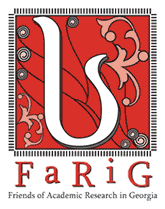Early Modern Georgian Literature and its Social and Cultural Implications
Marina Alexidze
The project has followed from the growing interest in the roots of Modernity in Georgia. The conducted research aims at contributing to the better understanding of the initial stage of the development of Georgian culture on the common European way. Besides, study of the Early Modern Georgian literature gives a good chance to trace the emergence and early development of the Modernity in non-Western cultures - the aspects, which became particularly important in the last decades.
The study of primary texts relevant to the understanding of the "spirit of the age" was the essential component of my work. In the first stage, the most part of my time was devoted to archival research in the Institute of Manuscripts, Museum of Georgian Literature, the Central State Archive of Georgia, and the National Library of Georgia. I have made photocopies of several unpublished works kept in the Institute of Manuscripts. Forty three authors have been identified for the study. I especially focused on minor authors, with the assumption that the traditional "canon" must be discarded in favour of a wide-ranging inclusiveness in order to show a more comprehensive picture of Early Modern Georgian literature. The unexplored works of minor authors, though often of the low literary quality, are of great importance as new primary sources for the understanding of social, economic, and political life, culture and ideology of Georgians around 1800. They have fully reflected the complicated processes developed in the country in that period - soul-searching and revision of values, the end of Orientalism and the end of a medieval spirit as well.
In the framework of the project, I have written three articles:
1. The Theory of Love in Early Modern Georgian Literature: from Divine Love to Sensuality (in Georgian).
The article traces the development of the matter of Love in Georgian poetry between 1750 and 1800, revealing how the Medieval allegoric reflection of the Love of God was challenged by the eroticism of the eminent poet Besiki putting worldly feeling into verse. Besiki was strongly attached to Persian poetry and there is no data confirming his contacts with Western culture. However, it is noteworthy that his theory of love coincides with a general freedom of expression at about that date in France and England.
2. Foreign “Singing Tunes” in the Georgian Poetry around 1800 (in Georgian).
In Early Modern Georgian literary theory, the word "tune" (khma) had two senses: prosodic, pointing at a poetical form or metre, and musical, indicating melody. However, in most cases khma implied both meanings, as poetry was closely interwoven with music in that period. My article discusses the adaptation of the foreign (Persian, Turkish, Armenian, Russian, Polish, etc) singing tunes by Georgian lyric poetry – a phenomenon which reveals the openness of Georgian culture, both “high” and popular, on the eve of great changes.
3. Prince David Bagrationi: Georgian Literature at the Crossroads
Please view this work as a PDF.
